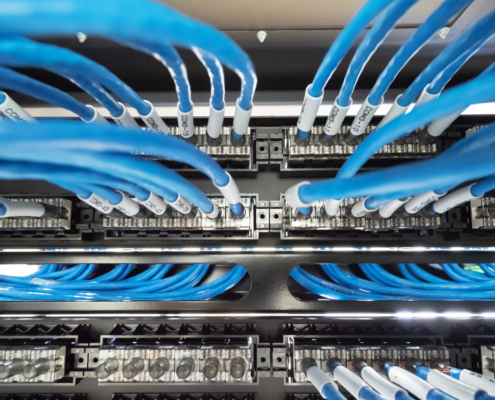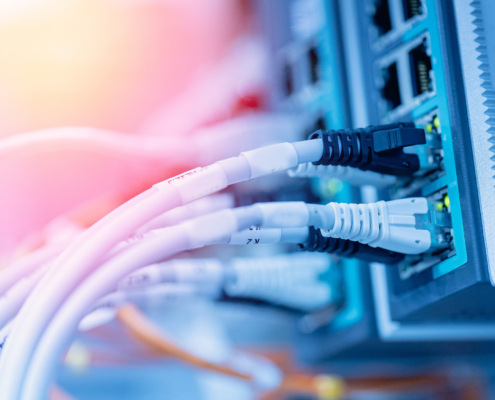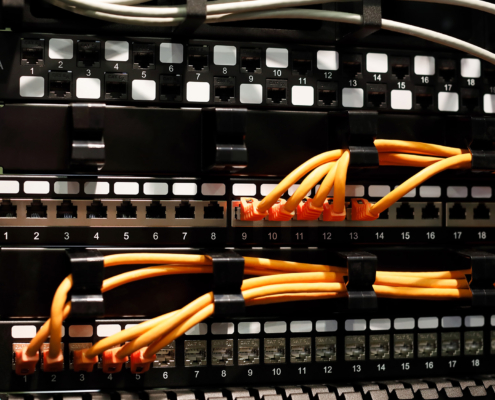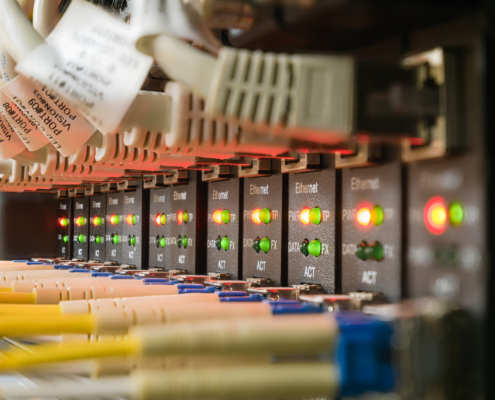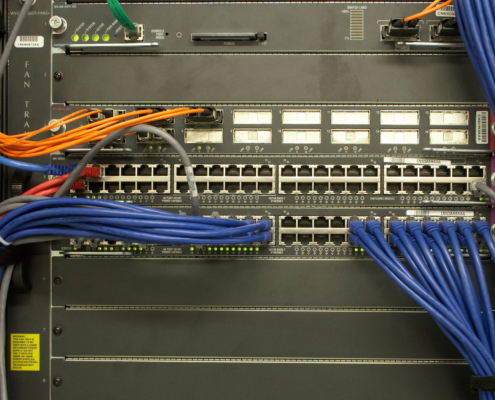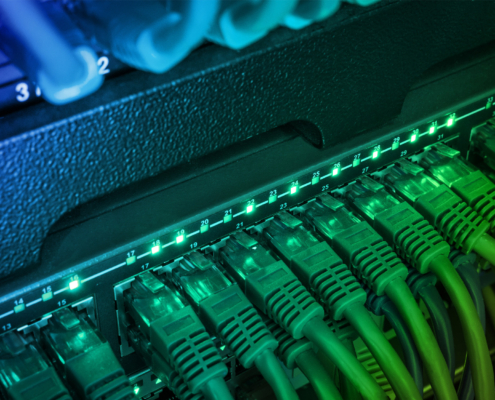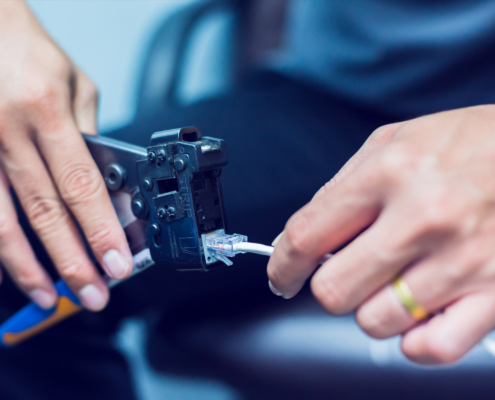 https://ringandping.com/wp-content/uploads/2024/10/Copper-Cables-and-Fiber-Optics.jpg
1250
2000
Abstrakt Marketing
/wp-content/uploads/2024/05/ringandping_logo.svg
Abstrakt Marketing2024-10-15 08:21:192024-11-05 12:45:30Copper Cables and Fiber Optics: Which Is Right for Your Network?
https://ringandping.com/wp-content/uploads/2024/10/Copper-Cables-and-Fiber-Optics.jpg
1250
2000
Abstrakt Marketing
/wp-content/uploads/2024/05/ringandping_logo.svg
Abstrakt Marketing2024-10-15 08:21:192024-11-05 12:45:30Copper Cables and Fiber Optics: Which Is Right for Your Network?Unless you know what you are looking for, it is difficult to tell the difference between network cables. A Cat5e cable physically looks almost identical to a Cat6 cable, but can perform at much greater speeds with less interference, if the cable is installed correctly and is actually up to the proper specifications. There are two different sets of specifications for network cables; Telecom Industry Association (TIA) and the Internal Standardization Organization (ISO), the latter being more stringent. The performance standards are concerned with two things, Near-End Crosstalk and Return loss. Near-End Crosstalk (NEXT) is a measure of the ability of a cable to reduce interference between two pairs in a cable. Return loss refers to the loss of power in the signal returned. Both measure how much signal degradation a cable causes.
Cat5e is required to meet performance specs for signals up to 100 MHz. Cat6 network cables are required to meet tighter specifications, and to meet those specs to 250 MHz. While the specifications set are clear, you would be amazed to see how many cables sold don’t actually meet those standards. Fluke Networks, the leader in cable testing equipment, did a study a few years back. They purchased a number of different brands of cable and they found that 80% of the cables failed to meet the necessary performance standards.
In order to achieve the top speeds of a cat6 network, every single network component from cables to connectors have to be up to cat6 specs. Consistency is key when it comes to good cables. Consistent drawing and extrusion of the cable, consistent twist rates, and consistent dimensions and materials are all key components to a properly functioning cable. Additionally, defects that occur during assembly or installation can cause major issues. Even bending a cable a little too much can cause errors or even total failure. Because these cables are so sensitive and susceptible to damage it is incredibly important that the network is tested to verify that is it achieving the expected speed after it is fully installed.
So, how do you test your network speed?
There are a number of different cable testing instruments. They vary in price and performance. The decent lower end models start at about $3,500 and higher end models can exceed $15,000. If those numbers sound too steep, a reputable network cabling installation company would be happy to provide you with a copy of the test results.
If you are having trouble with your network performance and would like to know if your network is up to spec, contact Ring and Ping Communications today. We’d be happy to provide you with a free, no obligation consultation. With every network we install, each component is tested to make certain it meets ISO performance specifications, guaranteeing your cat6 network will run at top speed. If any component doesn’t pass, it’s not installed. Give us a call at (714) 617-4025 and we’ll schedule your free consultation today.

